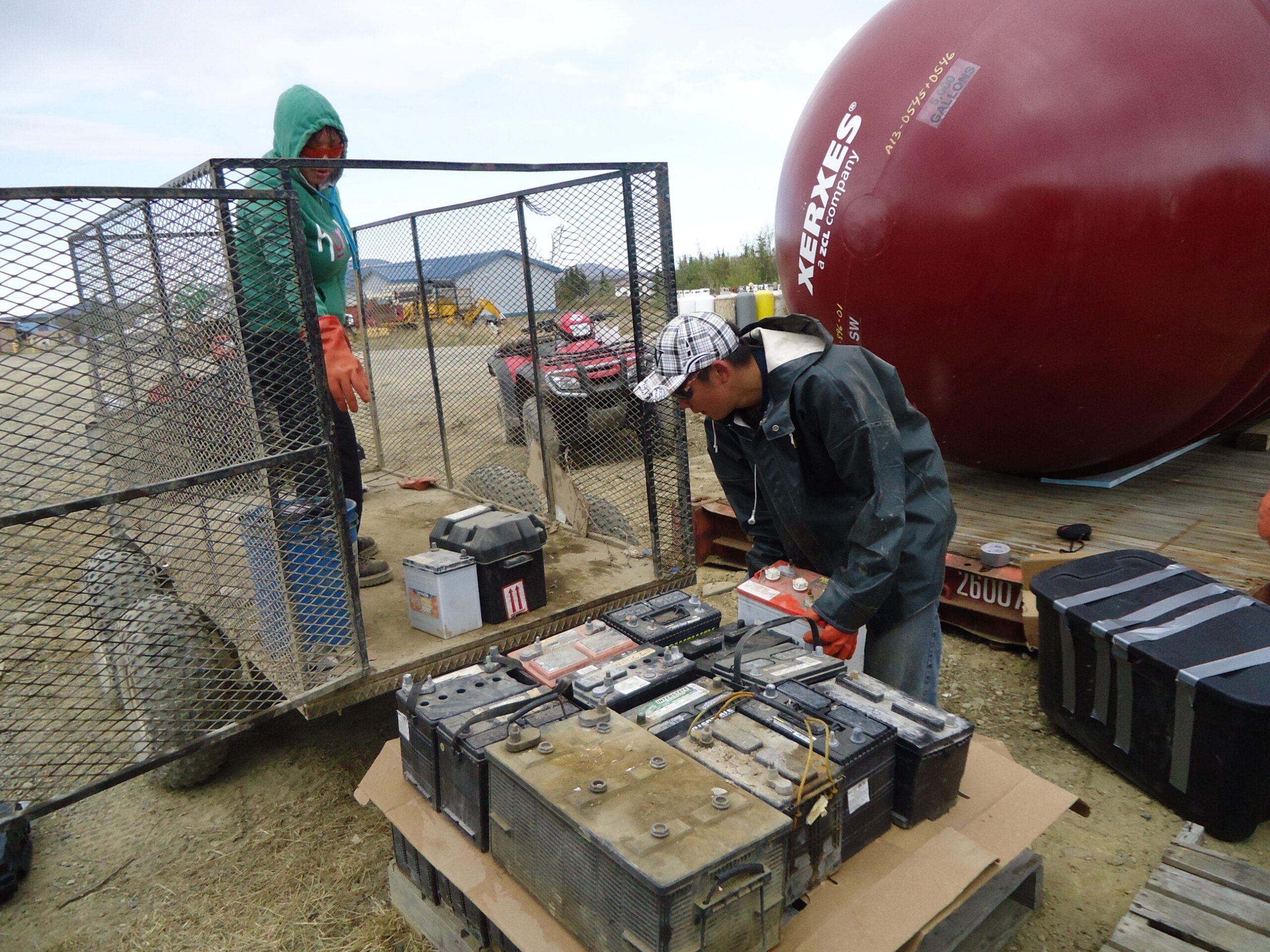
Given that most Alaska communities are scattered throughout this vast state and accessible only by air, boat or seasonal roads, waste management is a constant challenge, and certainly not something thought about every day. The disposal of hazardous waste, in particular, poses potential risks to our lands, waters, and subsistence resources, and to the health and well-being of Alaskans.
Our rural landfills are unlined, and dangerous chemicals from hazardous wastes could potentially leach into local soil and water or be emitted into the air from open burning. This is particularly hazardous for children and pregnant mothers. Over a four times greater risk of certain birth defects was found for babies born to mothers from communities with high hazardous waste content landfills.
Fortunately, Alaska has a sound and rapidly growing program to safely remove hazardous wastes, largely eliminating health and environmental risks. The Backhaul Alaska program leverages the skills and support of state and federal government entities, and the private sector, to work with our remote communities and provide the resources to safely backhaul harmful wastes.
Backhaul Alaska coordinates the responsible collection, transportation and recycling of hazardous materials, including spent lead-acid batteries, electronic scrap (e-scrap) such as discarded TVs and computers, and mercury-containing light bulbs, from remote communities.
The program would not be possible without a broad range of supporters and sponsors and, as the foundation of its success, Alaskans everywhere who have stepped up for their communities. Local staff and community volunteers spend countless hours inventorying, packing, and loading spent materials onto barges, planes and trucks across Alaska.
What began as a brainstorming idea from Sen. Lisa Murkowski more than a decade ago became a formal, modest pilot program in 2018, operating in 10 rural Alaska Native communities. In 2024, Backhaul Alaska served 94 remote villages, with plans to continue growing every year.
Backhaul Alaska is now gearing up for its 2025 collection efforts. Zender Environmental, an Alaskan non-profit, is proud to work with the Solid Waste Alaska Taskforce, comprised of senior waste experts from Alaska Department of Environmental Conservation, Alaska Native Tribal Health Consortium, and Kawerak to administer the program and provide the specialized training, supplies, logistical and technical support necessary for each community to move waste safely and efficiently.
Importantly, Backhaul Alaska also shows that the private sector is ready and willing to help.
For example, the program has collected more than 500,000 pounds of lead-acid car, truck, snow machine, ATV, boat, tractor and other heavy equipment batteries since 2018. These batteries are shipped south for recycling, supported in part by the Responsible Battery Coalition, which helps facilitate the packing, shipping and recycling of the majority of those batteries, and has returned more than $50,000 back to the program as payment for the battery cores. Backhaul Alaska uses this money to defray program costs, extending the funding the program receives from other sources.
Other generous private sector partners include The Matson Foundation, which regularly donates critical free shipping containers and services to move waste out of the state, and e-scrap recyclers Total Reclaim and Metro Metals. Alaska Airlines is also now a Backhaul partner, providing free shipping of e-scrap from Nome to Anchorage when cargo planes return empty, and Bering Air provides similar services from Bering Strait.
Finally, grants from agencies such as the Bureau of Indian Affairs, Department of Transportation, Department of Agriculture Rural Development, Environmental Protection Agency, and the Denali Commission underscore the federal government’s recognition of the importance of addressing Alaska’s unique waste management challenges.
The work of Backhaul Alaska is not easy, but it is undeniably vital. By working together to retrieve hazardous waste from rural Alaska, the program safeguards the health and environment of all Alaskans while building a cleaner, more robust economy for the state.
Lynn Zender is the founder and executive director of Zender Environmental. Steve Christensen is the executive director of the Responsible Battery Coalition.
As seen in The Anchorage Daily News, Delta Discovery and Ketchikan Daily News.